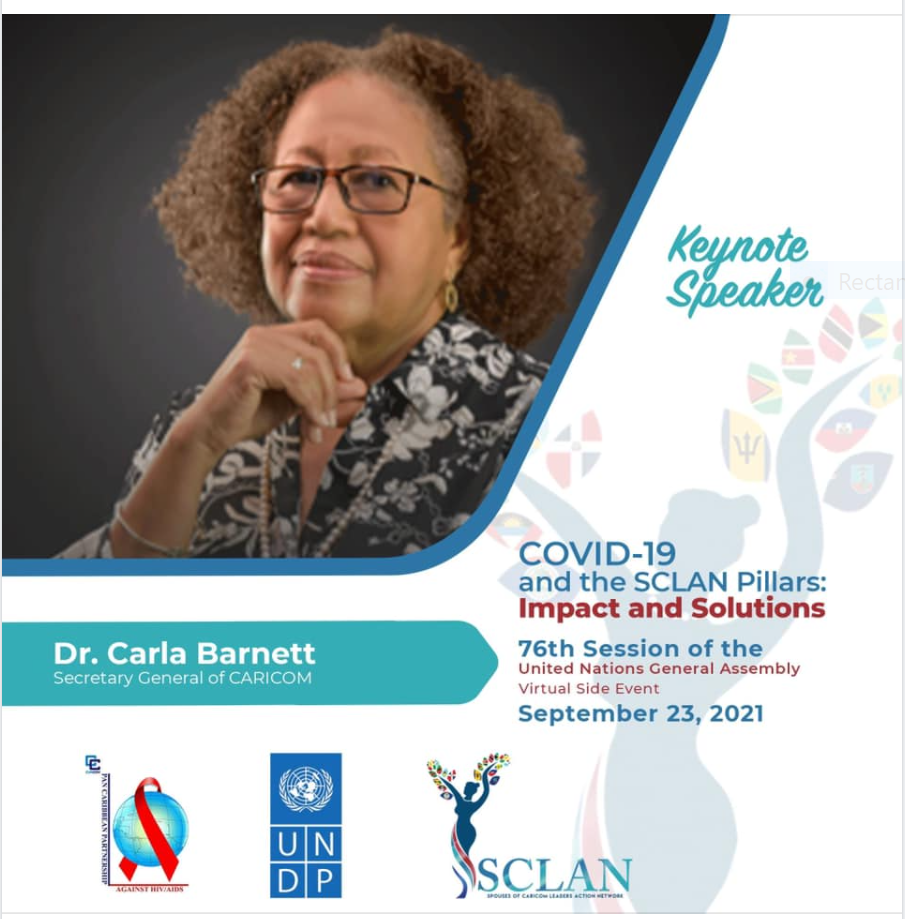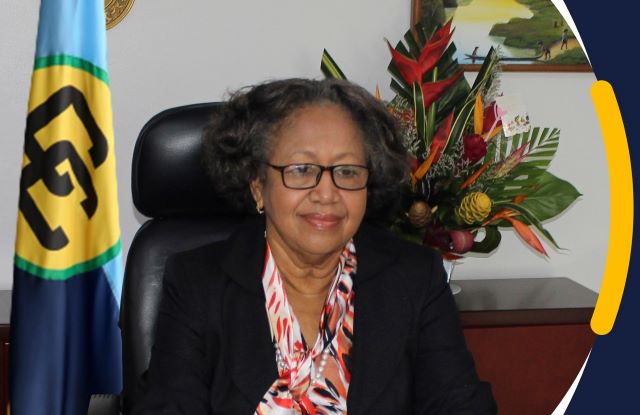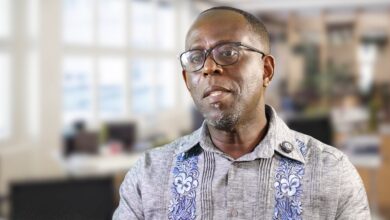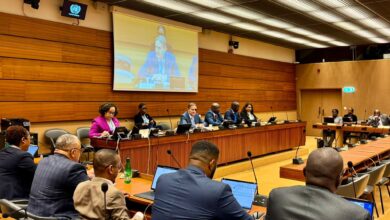Secretary-General Dr Carla Barnett presented the Keynote Address to the United Nations General Assembly Side-Event “COVID-19 and the SCLAN Pillars: Impact and Solutions, on Thursday 23 September 2021.
Here is the Secretary-General’s address:

- Your Excellency Mrs. Rossana Briceño, Spouse of the Prime Minister of Belize, Special Envoy for the Development of Families and Children, and Vice-Chair of SCLAN;
- All Members of SCLAN present;
- Honorable Osmany Salas, NGO Senator in Belize, my former colleague and Moderator for this event;
- Distinguished Speakers and Participants;
- Ladies and Gentlemen.
Let me begin by recognizing the commitment of SCLAN to advocate for and supporting the advancement of the Region’s greatest asset and the foundation of our future – our young people.
Your focus on the health and well-being of our women and children is entirely in harmony with CARICOM’s goal of a Community where every citizen is secure and has the opportunity to realise his or her potential with guaranteed human rights and social justice’.
Globally, the COVID -19 pandemic has disproportionately affected the lives of women and girls, in particular, those who experience disadvantages on the basis of age, race, geographic location, income level, migration status, disability and health status. We are told that for women and girls, its negative impact will most likely be felt long after the pandemic has passed unless we do something about it now.
Chair, how do we move forward to ensure that ideal and minimise the impact of the pandemic on the future well-being of this and future generations?
One of the most telling impacts on the well-being of girls is that of teen pregnancy. We already know that early pregnancy hampers the psychosocial development of girls, contributes to poor health outcomes, negatively affects their educational and employment opportunities and is a predictor of intergenerational poverty in households.
While Latin America and the Caribbean has the second highest adolescent pregnancy rates in the world in the age cohort 15-19 years, the Pan American Health Organization (PAHO) confirms that it is the only Region with an estimated increasing trend in pregnancies in girls younger than 15 years.
PAHO cautions that “the reduction of adolescent pregnancy requires ensuring universal access to sexual and reproductive health care services, including access to family planning, information and education.”
We knew this before the pandemic and these issues have become even more critical during the height of the pandemic. The already limited access to sexual and reproductive health, and rights information and services were further minimised and, in some cases, made non-existent and totally inaccessible due to lockdown measures and shifting of funding from those and other programmes to COVID -19 responses.
With school closures due to the pandemic, girls were severely at risk for early sexual initiation, unintended pregnancies, school dropout, and economic hardship. Concomitantly, the increased use of online platforms has facilitated increased cyber-bullying against women and girls. Social media posts and reports from women rights groups, also suggest that some have used children’s increased online presence as an opportunity to groom young people into exploitative situations.
Chair, there is no doubt that this has contributed to one of the more unfortunate outcomes of this pandemic, an increase in the levels of mental illness. A recent poll conducted by UNICEF, captured the voices of 8,444 adolescents and young people between the ages of 13 and 29 in nine (9) countries and territories in Latin America and the Caribbean. It gives an account of the feelings they faced in the period spanning the first months of the pandemic in March to September. Here are a few of the findings:
- 27% reported feeling anxiety and 15% depression in the last seven days;
- For 30%, the main reason influencing their current emotions is the economic situation;
- Their perception of the future has also been negatively affected, particularly in the case of young women who have and are facing particular difficulties;
- 43% of the women feel pessimistic about the future compared to 31% of the male participants;
- 73% have felt the need to ask for help concerning their physical and mental well-being. Despite this, 40% did not ask for help.
Another direct result of the actions to contain the virus is increased intimate partner and cyber violence. The COVID-19 pandemic has necessitated prolonged quarantines and thus, has exacerbated experiences of gender-based violence. In some countries in Latin America and the Caribbean, the increased reports range from 25% to 130% above previous years. According to UN Women in its “Women: Front and Centre Report” in 2020, on average, 137 women across the world are killed every day by a member of their own family.
Many women were forced to shelter-in-place with their abusers during the lockdowns and struggled to access services that were often times restricted or non-existent. Also, according to UN Women, the realities of the gender digital divide meant that women and girls in many countries may not have access to essential services that prevent and respond to violence against women and girls.
Chair, there are a number of lessons to be learnt from the past 21 months. I, however, will highlight just three:
- The importance of functional cooperation,
- The necessity to build ICT capacity and platforms which ALL can access, and
- The importance of sustained partnership and resource mobilisation.
Functional cooperation, evidenced in Member States pooling resources through our specialised institutions, enables us to address a number of challenges, which individually we could not surmount. This has been one of the greatest successes of the Caribbean Community and nowhere has this been better demonstrated than in health, including in combatting HIV/AIDS.
Sustaining partnerships and resource mobilisation are also important lessons from the COVID-19 experience. As the pandemic surged, a number of our partners redirected support away from vital sexual and reproductive health and rights services in favour of other COVID-related responses.
The support of International Development Partners and private sector organisations is critical as our Community seeks to recover and build back better, in our efforts to become a resilient Region. This does not only apply to the economic and financial aspects, but also to the social sphere where support is needed to address teen pregnancies, violence against women and girls, and to maintain the gains in mother to child transmission of HIV, all of which are SCLAN Pillars.
There must also be an all-out push to build and strengthen ICT to ensure access to all women and girls, particularly in situations where pre-existing socio-economic inequalities limit such access.
The recovery process from COVID-19 provides us with an opportunity for radical, positive action to redress long-standing inequalities in multiple areas of women’s and girls’ lives. There is scope for countries to build back better, but “build back better” must include “build back equal”. It requires multisectoral collaboration and cooperation, and for us in CARICOM, the principles of functional cooperation.
I encourage you to carry forward your advocacy of tried and true good practices and messages, such as delaying early sexual initiation, strengthening families, engaging boys and men in your programmes as you have been doing.
I have indicated already my intention to deepen the dialogue and engagement with the Region’s young people, and to expand and encourage their “ownership” of the integration process, through engagement of all stakeholders during my tenure.
In closing, I wish to signal my continuing support for the SCLAN initiatives and my willingness to explore options for deeper engagement.
I thank you.






